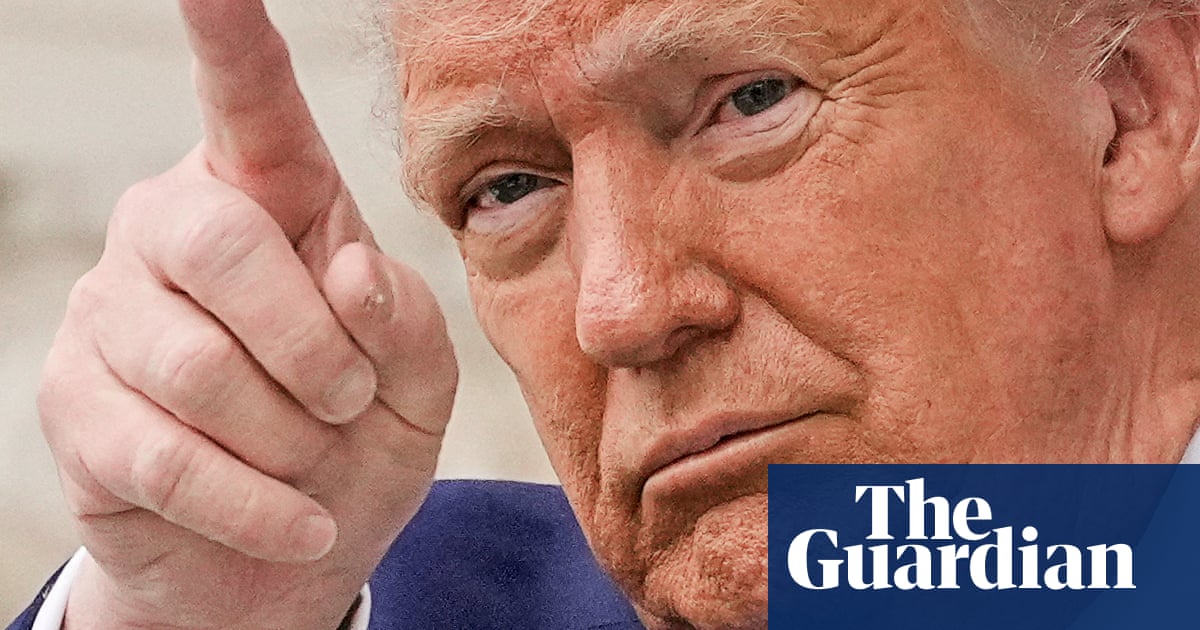Donald Trump delivered the traditional presidential Memorial Day speech at Arlington national cemetery and also attacked judges on social media, talking up his own achievements and threatening Harvard University with further cuts to its funding.
Trump posted on his social media platform: “I am considering taking Three Billion Dollars of Grant Money away from a very antisemitic Harvard, and giving it to TRADE SCHOOLS all across our land.”
Harvard has launched legal actions over what it said was Trump’s attempt to “gain control of academic decision-making” at the university and his administration’sthreat to reviewabout$9bn in federal funding. Last week the Trump administration announced it would revoke federal permission for the institution to enrol international students. A federal judgeissued an injunctionwithin hours, temporarily blocking such a ban.
Here’s what’s been happening.
A recent former president ofHarvard Universityhas urged people to “speak out” in defence of “foundational threats” to values such as freedom, autonomy and democracy in the US.
Drew Gilpin Faust, the first female president of Harvard, also warned of US constitutional checks and the rule of law being “at risk” under the current administration, even asDonald Trumpissued a fresh threat against the elite university as it seeks to repel his assaults on its independence and funding.
Read the full story
Hong Kong’s education bureau has called on the city’s universities to “attract top talent” by opening their doors to those affected by the Trump administration’s attempt to ban Harvard from enrolling international students.
Harvard has launched legal action against the ban but done little to assuage concerns among studentsthrown into limbo. Experts have warned the US the ban could be a boon for foreign institutions looking to attract talent.
Read the full story
Donald Trump honoured the sacrifices of US military veterans in the traditional presidential Memorial Day speech at Arlington national cemetery, but also peppered his address on Monday with partisan political asides while talking up his own plans and achievements.
The US president laid a wreath and paid tribute to fallen soldiers and gave accounts of battlefield courage as tradition dictates. But Trump also veered off into rally-style personal boasting and brief partisan attacks during the solemn event.
Read the full story
Holidaymakers in countries hit the hardest by Trump’s trade tariffs are taking the US off their list for trips abroad, according to online travel booking data.
Hotel search site Trivago has seen double-digit percentage declines in bookings to the US from travellers based in Japan, Canada and Mexico. The latter two countries were the first on Trump’s tariff hit list when heannounced tariffs of 25% on 1 February.
Read the full story
Experts have told the Guardian that Islamic State is capitalising on Trump’s dismantling of the international order, his affinity for Benjamin Netanyahu’s government in Israel, and most of all his appointment of Pete Hegseth as Pentagon chief, in its recruitment propaganda.
Read the full story
Former government officials have told the Guardian thatTrump’s quid pro quo approach to foreign policyhas more in common with his predecessors than it first appears. Where he does differ, they argue, is in his shameless abandonment of moral leadership and use of the US presidency for personal gain.
Cuts to AmeriCorps – the US agency for national service and volunteerism – were among the harshest doled out byDonald TrumpandElon Musk’s so-called “department of government efficiency” (Doge). Thosecuts are already disrupting LA wildfire recovery.
Catching up?Here’s what happened on25 May 2025.
